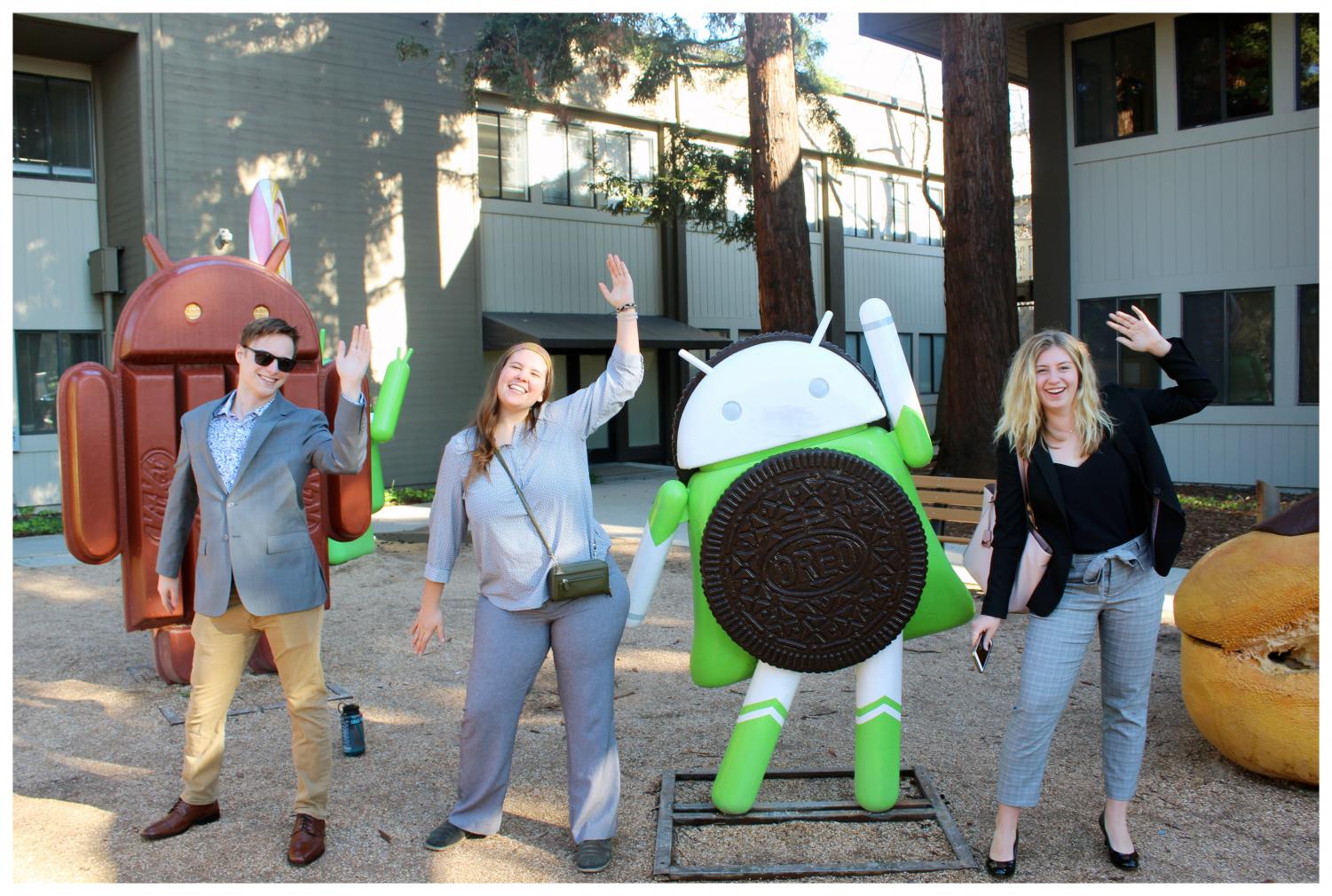“[In Silicon Valley] you see so many startups around you start to ask… why not me?” MTU alumni, Kanwal Rekhi, told me as we gazed out over San Jose from Dave House’s Vineyard. As an entrepreneur and angel investor, he has both run and invested in multiple startups throughout his career. During our time in Silicon Valley, many of us began asking the same question.
MTU’s Silicon Valley Experience (SVE) brought me and fourteen other students to the heart of innovation to connect with alumni, tour companies, and uncover the answers to our questions about entrepreneurship. During our time there, we saw companies in many stages of growth. From startups like Twilio and Blockfish all the way to big-names like Google and Facebook, each tour gave us greater insight into what it means to innovate.
While each company specialized in a different technology, they shared many similarities. Many of the companies were committed to continuous learning and supported employee interests. Smaller companies had bookcases and lounges that allowed employees to explore, whereas larger companies had full-blown classes to cater to the niche interests of employees. Along with this, tokens of gratitude could be spotted at almost every company. Employees were recognized for their accomplishments and encouraged to grow. For their product, each company was more fixated on creating a positive user-experience than the most unique or flashy new item. Key point: An idea is only as good as its execution.
So, what can we do as college students to find a future in the Valley? In true listicle format, I present to you six solid pieces of advice given to us by company representatives:
Be curious
This was the most repeated phrase we heard at each company. Curiosity is what started each company, and it is what keeps them alive. Asking questions and observing with a keen eye leads to new connections and insights. At HP we learned that thermal inkjet technology started with one person watching coffee brew in a percolator and wondering… “will ink move in the same way?”. The world is constantly changing, and only those who ask questions and know how to learn will be able to keep up. Figure out what you care about, then dive-in and explore!
Stay focused
Stuart Pann, CSCO at HP, shared with us a famous Dave House’s statement “You can do anything you want, but you can’t do everything.”
Time is a limited resource, and the most valuable one that we have. It’s worth doing a check to see where yours is going. If you know where you’d like to be in the future, it’s important that your day-to-day life brings you closer to that vision.
Many people we spoke with did not follow a linear path to their current positions. It is impossible to know exactly where we will end up but finding and heading along a thought-out path is better than simply hoping for the best. Google representative, Bill Reeve, suggests to ask yourself “if there are people who have jobs that make me jealous, what are the key characteristics of those jobs?”. To go along with this he adds, “[College] is not a, “dress rehearsal.” This is your only journey through life. Do some soul-searching and commit yourself to your best path. Don’t settle.”
Companies hire based on experience‑ not potential
This is another excellent piece of advice coming from Bill Reeve. Many of us think of ourselves as being smart, kind, and creative. However, other people cannot see or believe these traits unless there is something to show for it. Experience doesn’t need to be from working full-time. Enterprise, internships, clubs, independent projects, volunteering, and participation in competitions can all be great ways to demonstrate those top-notch skills. Michigan Tech offers a lot of opportunities to gain experience, so take advantage of them. Along with this, people invest in people. Consider what type of person you are and why a company might choose to invest in you.
Be resilient
Although we may try our best to avoid it, failure is inevitable. But if you have failed it means you have tried, which is a step in the right direction. If we can learn from our failures and adapt rather than retract, then each future choice will come from a more knowledgeable perspective. Failure is feedback, and it is one of the most powerful learning experiences life provides.
Learn to take risks
I know many college students who will claim they do take risks. Unfortunately, I don’t believe writing papers two hours before their due date is what the company representatives meant by this advice. The people that we met in Silicon Valley risked their time, money, and reputations to start their companies. Sometimes, the risks did not go well (see point 4), but eventually they paid off. In the entrepreneurial world, never taking a risk is the biggest risk of all as without it failure is guaranteed. As humans, we tend to overestimate the negative consequences of risk-taking, and underestimate the potential pay-off. Keep this in mind the next time an opportunity lands on your doorstep (or better, you walk yourself to opportunities doorstep and demand to be let in).
Big changes are a collection of small tasks
If you are in the business school here, you have probably heard about SMART goals more than a few times. Specific, measurable, actionable, relevant, and time-bound goals are better than large impressive-sounding ones. If a goal seems overwhelming, it needs to be broken down into smaller parts. Writing a novel happens one word at a time. Doing something small will always bring us closer to our goal than doing nothing.
Right now, at Michigan Tech, we have been given more resources than we might ever have again. Resources including faculty, the makerspace, career services, and the Innovation Center for Entrepreneurship are all rooting for you to succeed and are eager to assist. The opportunity is there, now what will you do with it?


